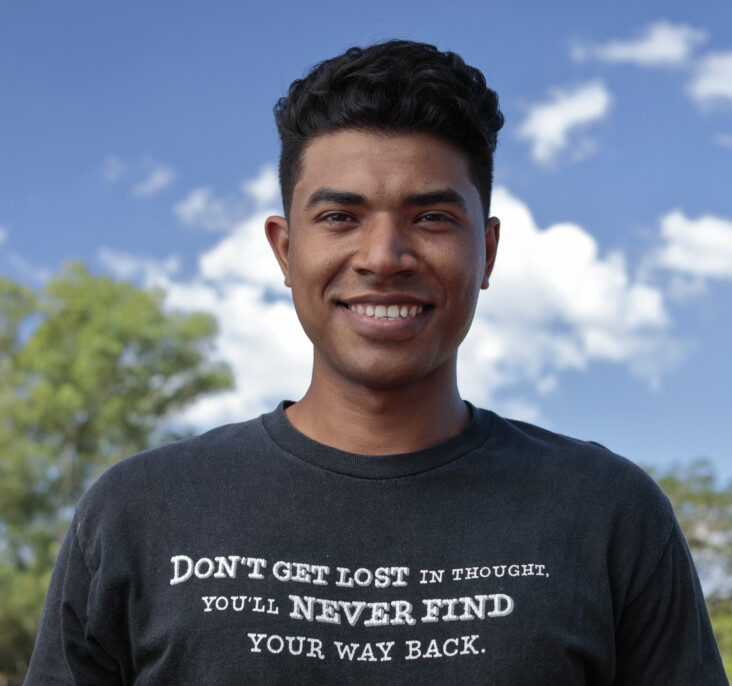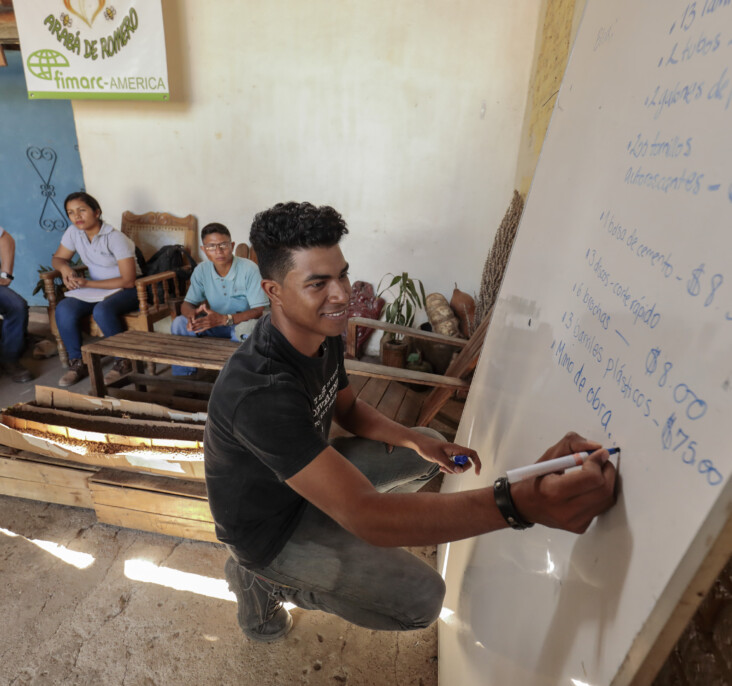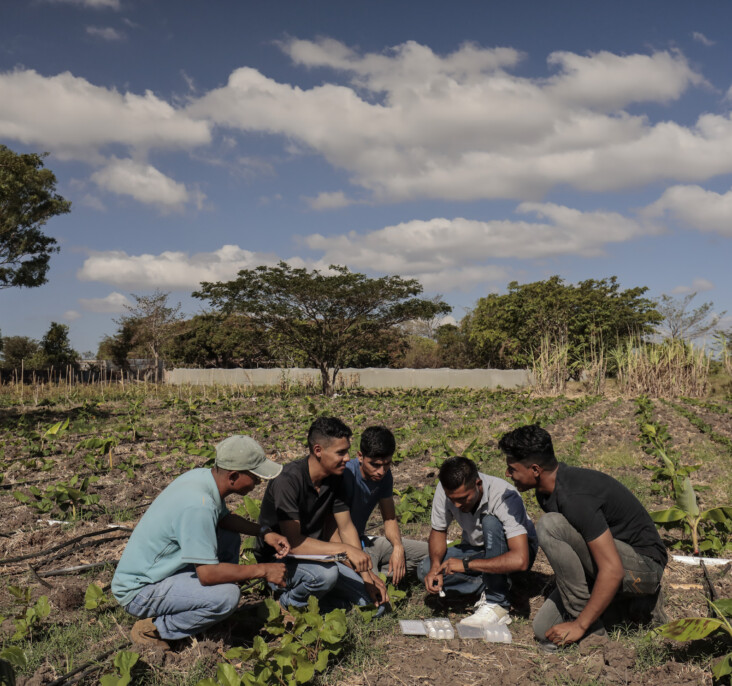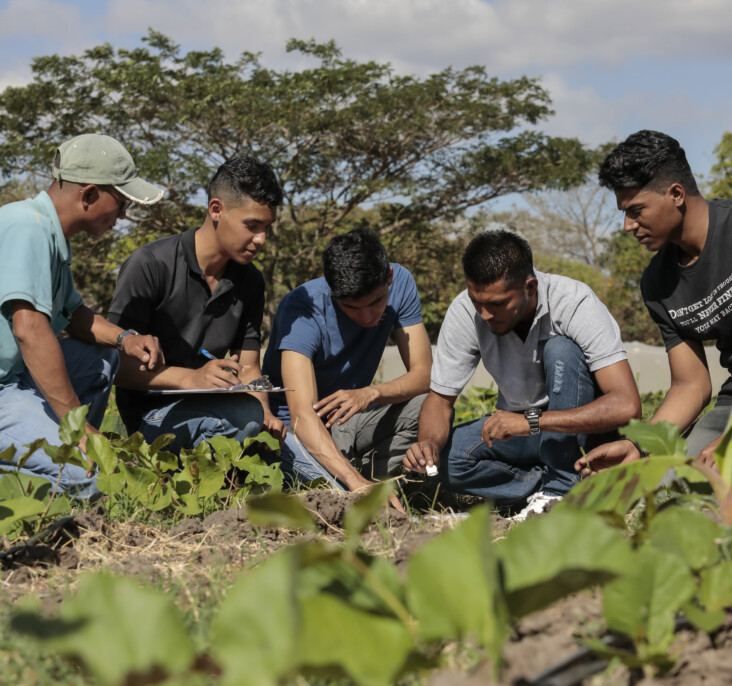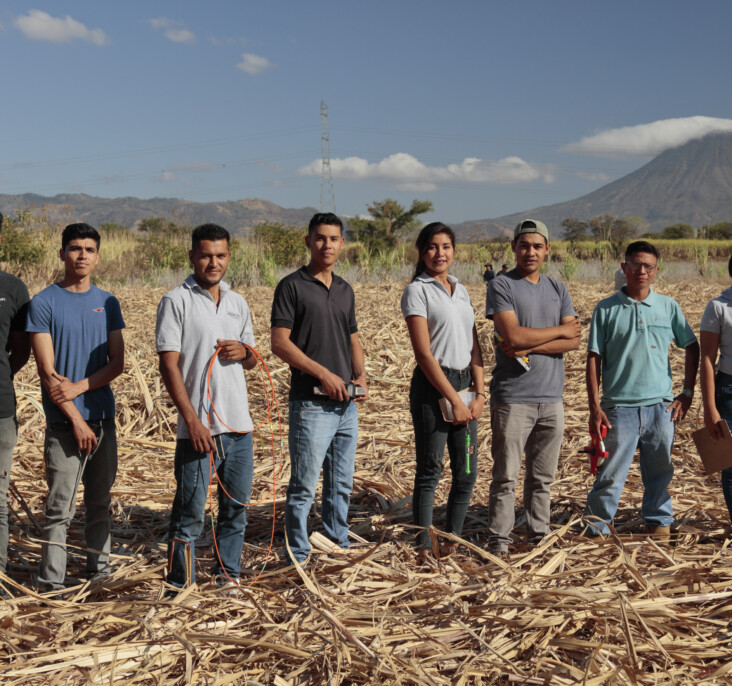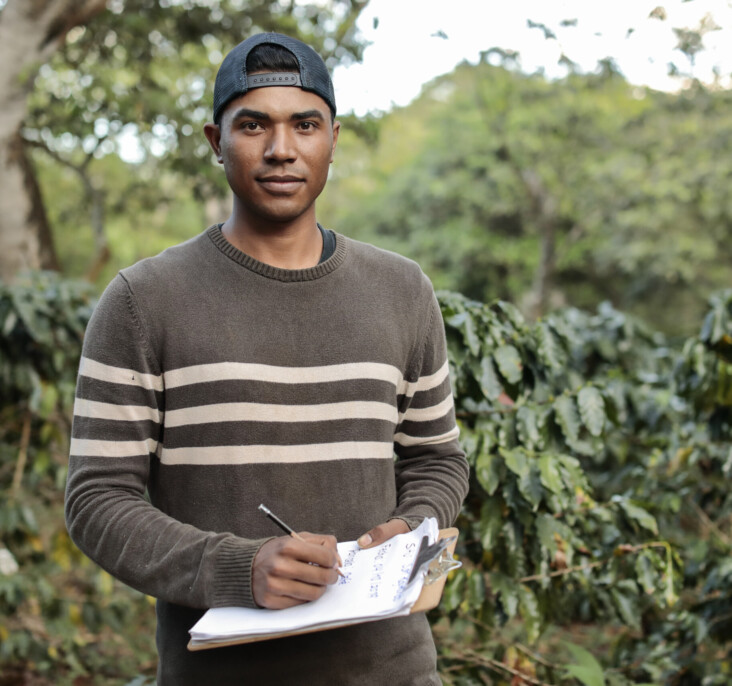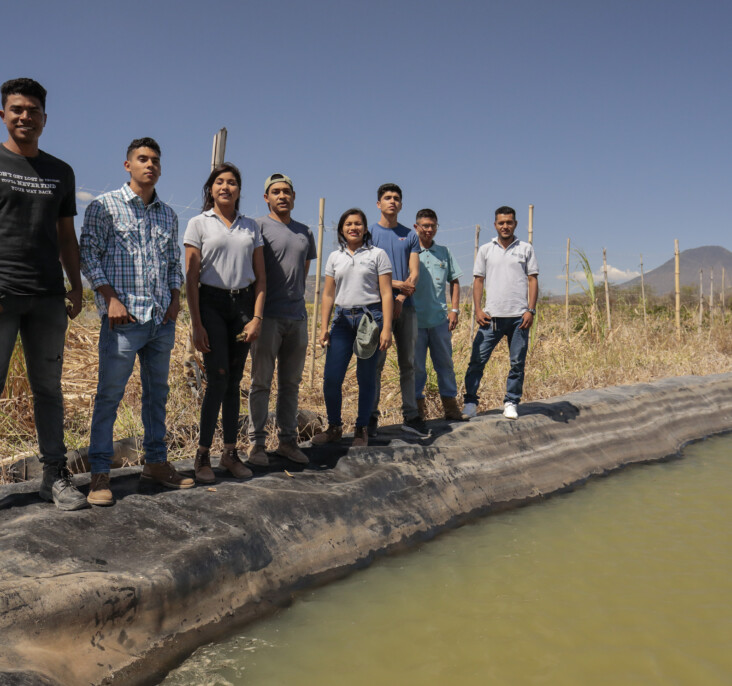In El Salvador, 26-year-old Bayron Alejandro Cazún Castro was in search of more than a job—he wanted a career that would support his family in the long term. In a region facing drought and land degradation, farming seemed to hold little promise. “My family grows basic grains and we have cattle. But still, everything is in the traditional way.”
Despite his love of nature and animals, Bayron felt a pull away from the farm. It seemed an outdated profession, where most struggled to get by. He imagined he would focus on his English studies and eventually go to work at a call center, where income would be more dependable. But after enrolling in a CRS training program on water-smart agriculture, Bayron began to see a future on the farm. “It works very differently from traditional farming, to preserve water and soil,” he says. “For us, that is our treasure.”
Today, Bayron works with farmers in his community, helping them grow healthy crops and preserve valuable natural resources. With a bit of training, young people like Bayron can find opportunities in the communities where they live. Bayron is ready to be one of those changemakers. “To do good, you don ́t wait for tomorrow,” he says. “Just do it right now.”
Boundless Potential
Around the world, more young people than ever before are seeking just, equitable and sustainable opportunities. With rising unemployment in many societies, this group faces economic anxiety, gang-related or political violence, and failing educational systems. These factors can push them toward migration, exploitation and human trafficking—putting the future of entire societies at risk. But hope is not lost.
At CRS, we see the boundless potential of young people. Alongside signature programming like microfinance training, agricultural support for rural youth, and work with refugees, we implement vocational training, entrepreneurship and leadership skill building, and advocacy for safe and dignified work conditions. In Latin America, our youth employment model is now in five countries, with 70% of young people finding employment or returning to school. CRS offers a path forward for young people—it is on that path where they find the transformational change they’re seeking.
We believe that every youth, no matter where they're from—however dangerous, vulnerable, economically challenged—that each youth has the power to change their life and the lives of their community.”
—Blain Cerney, Head of Programs, CRS El Salvador
A Generation of Innovation
The average age of a farmer in El Salvador is over 50. It is easy to think that’s because youth don’t care about farming anymore. But that’s not the case, says Blain Cerney, head of programs for CRS El Salvador: “What we’ve seen is if you provide youth with educational opportunities, you provide them with the right sort of technical training, and you provide them with a vision toward how they’re going to earn a living for them and their families, the youth absolutely want to work in agriculture.”
For farming to both interest and sustain a new generation, however, it will have to adapt to a changing climate and a new generation of innovation.
“This agriculture has been done for 50 years,” Bayron says. “It is a little difficult to come and say, ‘Can we do this differently?’ And it is a little more challenging for a young person to tell an older person how things should be done better.”
The key to sustainable change on all fronts is to involve the next generation. Thirty percent of El Salvador’s population is under 20 years old. “I call that an opportunity,” says Blain. In a time when they are often framed as a threat, tied to media reports of gang violence and migration, Blain sees El Salvador’s young people as a part of the solution: “We try to focus on the power of youth.”
Bayron didn’t always believe his future would be prosperous. Now a leader on the farm and in the community, his perspective has changed. “Once, someone asked if I saw a better future for my country. Now the truth is ‘yes.’ The fact that young people are taken into account, given jobs and put in charge is huge progress. For that trust to be bestowed on us feels really great,” he says. “People don’t speak well of young people in El Salvador because of the crime. I would say to people who do not believe in young people: Give us a chance.”
